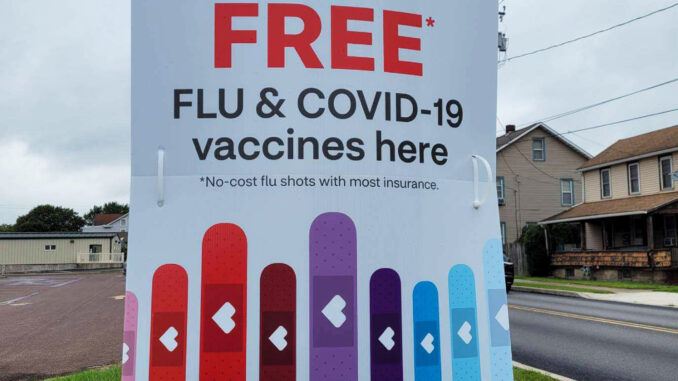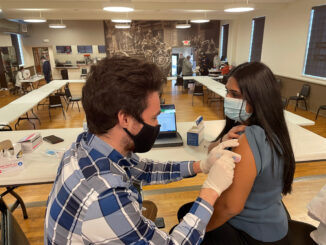
Andrew Cummings | multimedia editor
Sept. 16, 2021
Should I get a vaccine? This has been the most pressing question for everyone amidst the Covid-19 pandemic.
I think that people should choose to get vaccinated.
The first point to address is for people who aren’t in a risk group and think they’re healthy enough to weather Covid-19 without a vaccine. While it is possible that someone who is young, healthy and not at risk could experience the virus without any significant symptoms, there is something else to be said about the spread of the virus.
Just because a healthy person can survive the virus does not mean that someone they may pass it to will have the same experience.
For example, some people have risk factors that make them significantly more susceptible to Covid-19, whether it be due to age or an underlying condition. Some people are also not able to take the vaccine, and are put into the position of trying to avoid the virus if they do not want to risk experiencing serious symptoms.
Even though it is still possible to transmit Covid-19 with a vaccine, the CDC says that there is a reduced risk of “spreading the virus that causes Covid-19” than if someone is unvaccinated.
Another important point is the potential risk of vaccines. The primary vaccines (Pfizer, Johnson & Johnson and Moderna) were initially authorized for emergency use by the FDA — rather than a full approval. This caused doubt for many, because there was anxiety that the Covid-19 vaccines were not tested as thoroughly as other vaccines that have full FDA approval.
The first thing that is important to realize is that for the Pfizer and Moderna vaccines, the mRNA science that they are based on is not new. According to the Canadian Institutes of Health Research, there is research going back to the 1980s on mRNA. The vaccines that are being used to treat the virus are tailored to treat this specific disease, but the fundamental science that they are based on is not new.
Some people are worried about potential side effects of the Covid-19 vaccine. Because they were all under emergency authorization, are they still safe to use?
For anyone with this mindset, they should compare the known side effects of Covid-19 with those of the vaccines. According to the CDC, if someone contracts the virus, there is a chance of them developing various long-term symptoms. Some of these symptoms include difficulty breathing, sleep problems, muscle pain and difficulty thinking or concentrating.
If someone gets a vaccine, they will likely experience soreness, fever, headaches and fatigue for one to two days after receiving it.
The potential symptoms from Covid-19 are worse than any known symptoms of any of the vaccines.
Since the vaccines were emergency approved, there have not been any serious side effects seen on a statistically significant basis that would be cause for concern. Some people may have an allergic reaction, but this is not new for vaccines. Some people have developed blood clots, but the chances of getting blood clots from Covid-19 are still higher (according to a study published in the British Medical Journal). We do not know for certain the long-term side effects of Covid-19 vaccines, but we do already know that there are some dangerous long-term side effects that come from Covid-19.
So the question essentially boils down to: should I take the vaccine that does not have any known widespread long-term symptoms, or risk getting Covid-19, which is known to have significant immediate and long-term symptoms?
If enough people get vaccinated, the human population should reach herd immunity. This means that enough people will either be vaccinated or have developed the antibodies from having Covid-19 to slow the spread and threat to the public.
But until this happens, Covid-19 will remain an ever-present risk in the world and on our campus.



